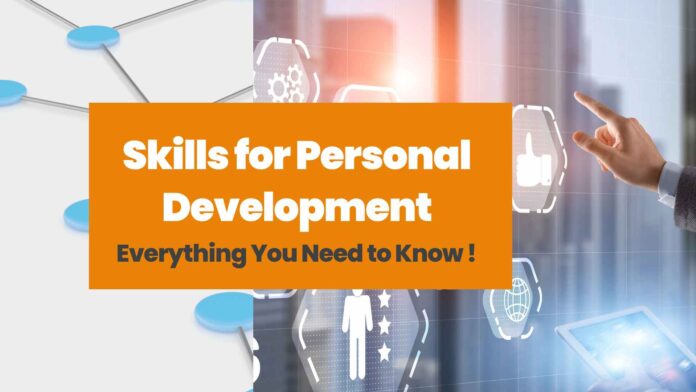Introduction
One of the key skills for personal development is self awareness. Self Awareness involves understanding how your thoughts, feelings, behaviors, and emotions influence each other. With this understanding, you can make more informed decisions about how to move forward in any situation. Additionally, self awareness leads to greater emotional intelligence – the ability to be aware of and respond to your own emotions as well as those around you.
Setting goals is also another important skills for personal development. By having a goal – big or small – you create measurable objectives that help you move in the desired direction. It also provides motivation in times of challenge and allows for reflection on successes which encourages further development. Goals are also dynamic processes; with each achievement comes new objectives tailored towards long term success. Following are some of the skills for personal development.
Self Confidence
From achieving your goals to maintaining relationships and even succeeding in a career, having self belief and the drive to push yourself forward can make all the difference. In order to reach our highest potential, it is important to develop such skills for personal development.
Mindset is also an important skills for personal development. When you have a positive mindset, you’re more likely to believe in yourself and take risks, whether that means taking on a new project or making an old dream come true.
To enhance this mindset, it’s important to practice self awareness; taking the time to think about what makes you unique and why those qualities are valuable. Challenging your beliefs can also be beneficial; these may include outdated ideas of what you should do or how others view you. By reconsidering these beliefs, you can open yourself up to opportunities that you may have previously overlooked.
If fear is holding you back from going after your dreams, start by learning new skills for personal development For example, if public speaking intimidates you, try taking a course or getting involved with an organization that requires this type of activity. You may surprise yourself by discovering how capable and confident you are! Additionally, practicing self acceptance is key; remember that it’s ok not to be perfect and striving for progress rather than perfection will help keep your motivation high and your confidence growing.
Finally, establish clear goals for yourself so that self confidence can become a regular part of your life. Set small achievable goals at first which will build on one another over time – this way there is something tangible to work towards when moments of doubt arise. Following are some of the skills for personal development.
Have a look at the best PG Program In Investment Banking with placement with placement guarantee
Communication Skills
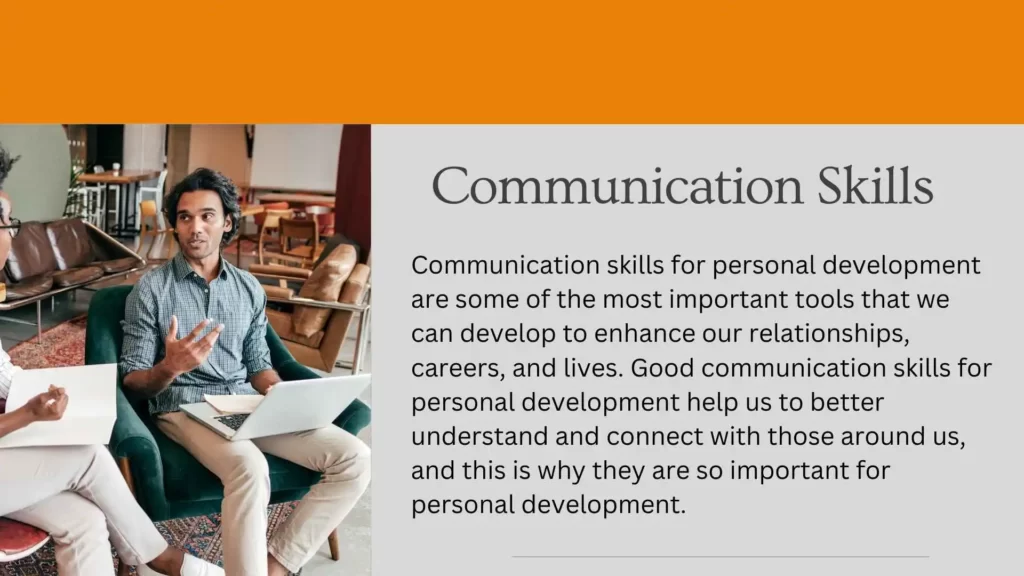
Communication skills for personal development are some of the most important tools that we can develop to enhance our relationships, careers, and lives. Good communication skills for personal development help us to better understand and connect with those around us, and this is why they are so important for personal development. Without these skills, it can be difficult to build meaningful relationships and have productive conversations.
When considering communication skills for personal development, there are a few key points to keep in mind. Firstly, the ability to understand where others are coming from is essential for successful conversation. Listening carefully to what someone has to say and responding thoughtfully shows respect and understanding of their perspective. In addition, communicating your own thoughts clearly and confidently will help you get your message across in an effective manner.
The good news is that communication skills for personal development can be improved through practice. Whether it’s through different forms of media like reaching out via emails or phone calls or having face to face conversations, improving the way you communicate with others is key for successful relationships.
Try to challenge yourself by practising active listening which means paraphrasing back what someone said in order to ensure full understanding along with staying open minded while listening without assumptions or jumping to conclusions too soon.
In conclusion, it’s important to remember that communication skills are essential tools for personal growth that everyone should strive towards mastering if they want successful relationships with others. With practice and dedication, you can improve your ability to listen and express yourself clearly and confidently in all areas of life.
Empathy
Empathy is one of the important skills for personal development, as it helps you build a greater understanding of the feelings and perspectives of those around you. Knowing how to put yourself in someone else’s shoes can be hard when you’re dealing with challenging situations – but having strong empathy skills is key to managing and resolving conflict in both your professional and personal life.
First, it’s important to recognize and appreciate the feelings of others. Try spending time listening carefully, without judgment or expectation, to what those around you have to say. Pay attention to their words and body language – pick up on subtle cues that may indicate how they are feeling. Ask open ended questions and seek clarifying details that can help you gain insight into their emotional state.
Make time for reflection; think about your actions from different perspectives and observe yourself in different situations. Writing down your thoughts can also be useful when exploring the inner workings of your mind.
Finally, learn how to respond appropriately in different situations. While we should always strive for empathy when dealing with others, there are times when helping someone requires quick action rather than showing empathy immediately such as during an emergency situation or if someone is in danger. No matter the circumstance, it’s important to stay calm so that you can make the best decision possible while still respecting everyone’s feelings involved.
These tips can help you develop key empathy muscles essential for personal growth and wellbeing. Learning how to identify and manage emotions makes us more productive – but it also allows us to nurture our relationships with those around us.
Also, Give a visit to the best PG Program In Financial Modelling with placement guarantee
Leadership skills

Leadership skills for personal development are crucial. Developing strong leadership skills for personal development can help you progress in both your personal and professional life. Whether you aspire to be a manager or just want to be more confident in your daily life, honing your leadership abilities can provide tangible results in every area of your life.
First, learn how to communicate effectively with people. Good communication is essential for establishing trust and building relationships. Listen carefully when people talk, taking note of nonverbal cues in addition to the words spoken; this will make it easier to understand what someone means. Conversely, take the time to express yourself clearly and concisely – try not to ramble or jump off track during a conversation.
Second, learn how to manage conflict effectively and work through disagreements without allowing emotions to get in the way. It’s important not to take criticism personally – try to stay focused on finding an objective solution based on facts rather than feelings. Additionally, strive for compromise whenever possible as opposed to trying to win an argument at all costs.
Third, understand the importance of delegation and how to delegate appropriate tasks accordingly. Knowing how and when to assign specific assignments will allow you to get the best use out of your resources while also taking some of the pressure off yourself by spreading out duties among different team members or colleagues.
Finally, practice self leadership and commit time each day toward bettering yourself as a leader and person overall; this may include reading books related to developing leadership skills or even finding top tier mentors who can give you helpful advice from their own experiences leading teams or organizations. Ultimately, having strong leadership skills for personal development requires dedication and hard work – don’t expect success overnight.
Work ethic
Having a good work ethic are essential skills for personal development. It takes hard work and dedication to install the right attitude and actions that will ensure success in any field. A strong work ethic consists of, but not limited to, commitment and resilience, time management, accountability, and effective communication. Therefore, a few tips on how to develop these skills will help you cultivate a beneficial working attitude.
First things first – Commitment and resilience are key characteristics of the work ethic. Working diligently with a “no excuses” attitude will help you meet your goals. If a problem arises, be sure to take the initiative in addressing it in a timely manner; stay resilient in any setbacks you may experience.
Time management is another very important factor when it comes to having a strong work ethic skills for personal development. Being able to efficiently manage your time with proper planning allows you to organize yourself better so that you don’t feel overwhelmed or too busy for certain tasks or projects; this sense of organization enables you to accomplish more work within the given timeframe.
Accountability is also essential for developing good work ethic skills for personal development*; it is important to take ownership of your actions and understand their consequences. This includes both positive consequences (achieving rewards) as well as negative ones (learning from mistakes).
Lastly, effective communication is an integral part of cultivating an excellent work ethic—it ensures that everything runs smoothly between colleagues and allows for honest feedback without coming off as rude or disrespectful. It also builds trust among team members—not just in each other’s abilities but also in reliability when it comes to meetings, deadlines or other obligations within the workspace environment.
Visit the best investment banking courses
Decision-Making Skills
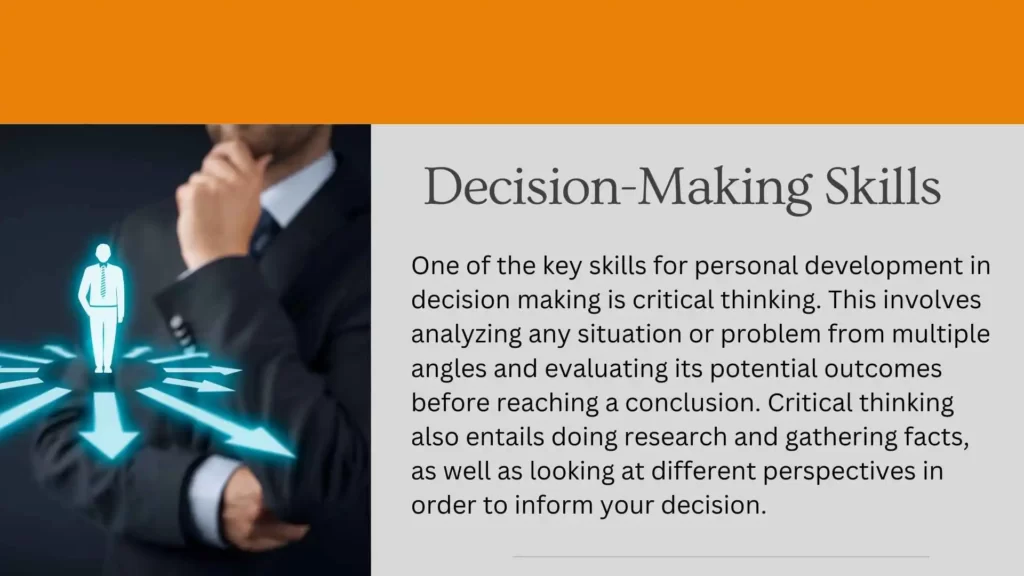
Making decisions is an inevitable part of life. However, not all decisions are created equal, and having effective decision-making skills for personal development can be the difference between a successful outcome and an unsuccessful one. Fortunately, there are several key skills you can develop to help improve your decision-making process.
One of the key skills for personal development in decision-making is critical thinking. This involves analyzing any situation or problem from multiple angles and evaluating its potential outcomes before reaching a conclusion. Critical thinking also entails doing research and gathering facts, as well as looking at different perspectives in order to inform your decision.
Another crucial skills for personal development in decision-making is being able to analyze alternatives. It’s important to consider the pros and cons of various options before making any decisions, as this will help you determine which option is best suited for the situation at hand. This includes being able to objectively weigh risks against rewards and make decisions accordingly.
It’s also beneficial to have creative solutions or ideas when making decisions. Sometimes the solution isn’t immediately obvious, but with creative thinking, you’re more likely to come up without the box solutions that may work better than traditional ones. Being imaginative and open minded can give you an edge when it comes to decision making.
Finally, emotional intelligence plays an important role as an effective decision making skills for personal development too. Understanding your own emotions and how they affect your decision making process can be invaluable when trying to make a tough call or deal with challenging circumstances. Being aware of how others are feeling — their motivations, fears, and doubts — will also help inform your decisions so that you can take everyone’s feelings into account before coming to a conclusion.
Problem solving
Problem Solving is one of the essential skills for personal development. It’s a complex process, so understanding how to effectively break down and resolve issues can be a challenge. But if you know the right techniques, you’ll be able to craft creative solutions to life’s problems.
When it comes to problem solving skills for personal development, generating solutions is the first step. You need to think about what’s causing the problem and come up with potential solutions. Consider taking different perspectives when brainstorming ideas – look at the issue from various angles and you may find something you hadn’t considered before.
One useful technique is having a brainstorming session with colleagues, friends or family members – they can help open up new possibilities you may have overlooked.
Brainstorming skills for personal development is also a great way to come up with creative ideas that could lead to solving your problem. Start by writing down all possible solutions no matter how crazy or unlikely they seem; you never know when a thought might spark another innovative idea. Additionally, don’t forget to consider outside sources such as articles, books or professional advice that could be applicable in this case as further sources of inspiration.
Finally, don’t forget that even if different solutions are proposed during the brainstorming process, it’s important to evaluate all options objectively and choose one based on which will have the best outcome for everyone involved. After evaluating each solution thoroughly based on its pros and cons, you’ll be able to make an informed decision about which option will work best for your needs.
Watch out for the most popular Investment banking course in India
Integrity
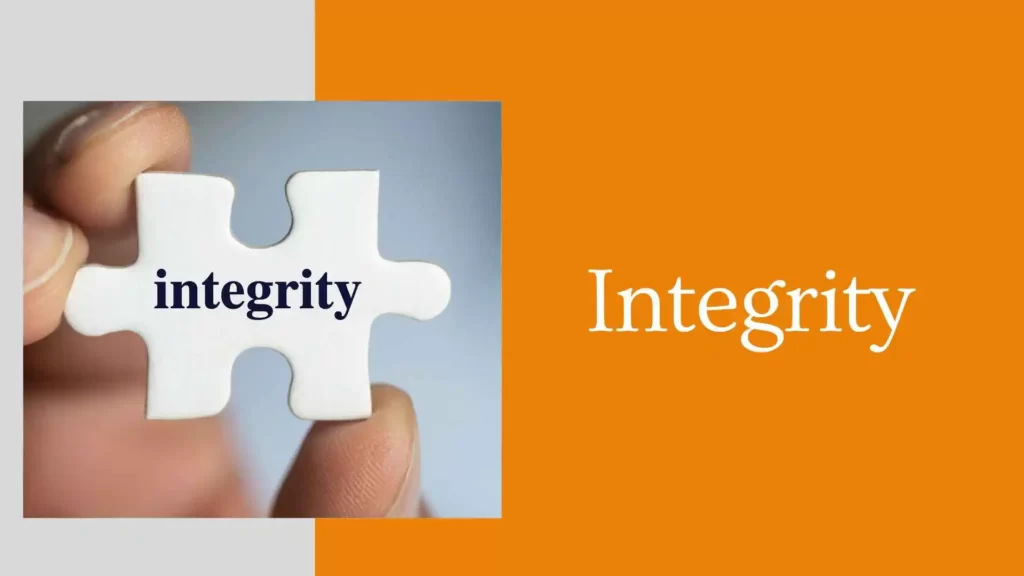
Integrity skills for personal development should be a core part of any personal development plan. It is a quality that can not only allow you to excel at work, but also bring balance and integrity into your life. Developing your integrity skills for personal development can help you become emotionally stronger and better able to handle situations that come your way.
When it comes to developing your integrity skills for personal development, there are three key components to remember: self reflection, honesty and courage. Self Reflection allows you to step back and take stock of yourself and your current situation.
This can be done through journaling or even verbalizing activities to yourself in order to get an honest assessment of where you stand in life. Honesty is the key ingredient for building trust with yourself, others, and the world around you; this means being open about who you are and how you feel without being judgmental or defensive.
Finally, courage allows you to approach difficult moments without fear or hesitation; this requires remaining focused on the task at hand rather than letting anxiety consume you and stop progress from occurring.
Knowing when these three components work together will give you the ability to act with integrity no matter what situation arises in life. You’ll come across both positive and negative experiences, but having the courage to take action while remaining honest will ensure that whatever path chosen is true to your values and beliefs. Learning how these three components benefit personal development will give you the know how necessary for finding balance within yourself while developing stronger relationships with others by believing in yourself above all else.
Integrity is a trait many strive for but few have mastered so if personal development is a priority for yourself, building your integrity skills should be at the forefront of any plan created.
Adaptability
Adaptability is one of the key skills for personal development. It’s about being flexible in both thought and action so that we can respond to our ever changing environment. This could mean being open to trying new things, or bringing fresh ideas to the table. It also involves having the ability to pivot quickly when needed and being willing to take risks and make changes within our approach.
When it comes to adaptability skills for personal development, You need an understanding of what motivates you and drives you toward success, as well as an awareness of your own strengths and weaknesses. This will help you recognize the ways in which you may need to adjust yourself along the way in order to keep up with new challenges or opportunities.
Flexibility skills for personal development are another important part of adaptability that heavily ties into self awareness. Being flexible means being able to shift focus from one area or task to another without becoming overwhelmed or frustrated. It also involves recognizing when different strategies may be necessary for different situations so that you can decide how best to move forward.
Finally, it’s essential that you maintain an open mind when adapting to change so that you don’t get stuck in old patterns or habits. This is why it’s important for us all to stay informed on current events and the latest trends; this knowledge can be used as a tool for developing more creative solutions and innovative ideas.
Learning how to become more adaptive isn’t something that happens overnight; it takes practice and patience along with a commitment to personal growth and development.. However, by taking the initiative and putting in the work today, you can reap the rewards of being more adaptable tomorrow!
Interpersonal skills
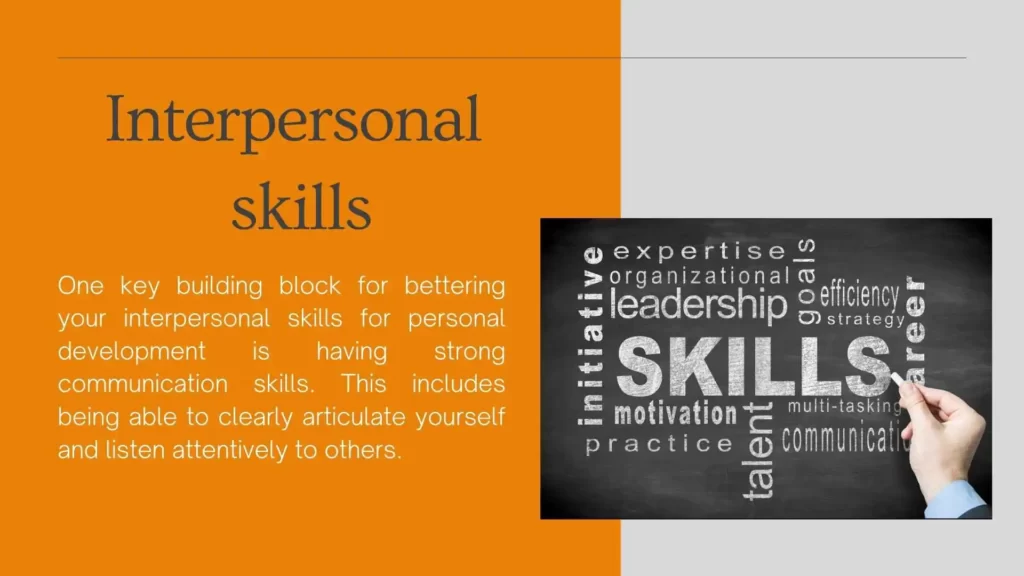
Interpersonal skills for personal development are essential. . Enhancing your interpersonal skills for personal development can give you an edge in both your personal life and career.
If you want to develop your interpersonal skills for personal development, it’s important to first understand which aspects need improvement. Identifying areas of opportunity will help you prioritize specific activities and strategies for making progress.
One key building block for bettering your interpersonal skills for personal development is having strong communication skills. This includes being able to clearly articulate yourself and listen attentively to others. Being able to read body language is also useful when communicating with someone in person or virtually. Additionally, understanding emotions and being aware of nonverbal cues are important skills that can help you have healthy relationships with those around you.
Another key aspect of developing interpersonal skills is the ability to resolve conflict when it arises. This involves managing potential arguments by staying calm throughout the discussion, listening actively, and finding common ground while maintaining respect. It may be helpful to develop a toolbox of strategies such as deep breathing, active listening, or reframing statements before engaging in a dispute in order to stay levelheaded during the conversation.
Conclusion
Personal development is an essential part of any individual’s life. It is an ongoing process that enables you to reach your full potential and achieve your goals. Through personal development, you can gain the necessary skills and knowledge to make progress in your career, relationships, health, and overall wellbeing.
Frequently Asked Questions
Personal growth involves five main areas: mental, social, spiritual, emotional, and physical.
Developing certain abilities can help you grow as a person. These include being able to communicate clearly, having a strong work ethic, leading others, staying organized, solving problems, feeling confident, and being honest.
The Life Wheel includes seven areas of life that make up a person: Self, Behavior, Social, Physical, Emotional, Mental and Spiritual.
Developing personal skills is important to help you make plans and progress towards your goals, both personally and professionally. Incorporating these skills into your everyday life can help you reach your goals faster.
Developing each of these eight pillars – physical, nutritional, emotional, social, spiritual, intellectual, financial, and environmental – is key to becoming a healthier and happier version of yourself. Even small actions like taking care of your teeth contribute to this goal.
Your quality of life is affected by eight different aspects: body, mind, work, spirit, finances, community, emotions, and environment. Struggling in one area can have an impact on the others. For example, financial difficulties can make it harder to succeed socially.
These qualities include being able to communicate, solve problems, and be flexible and dependable.
Personal development involves developing skills over time, often through experience. Examples of such skills include presentation and time management.
Personal development involves improving different areas of your life, which can lead to positive growth. The six main aspects of personal development are physical, financial, relational, emotional, spiritual and intellectual. Working on each one can help you grow as a person in all aspects of life.
There are many aspects of development, but the most important ones are physical, cognitive, language, social, emotional, moral and gender.




